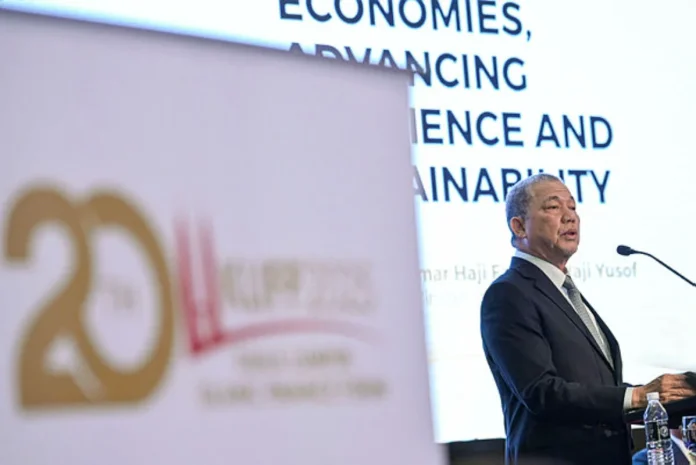Deputy PM Ahmad Zahid calls for stronger ASEAN cooperation to protect children from online threats, proposing three regional safety mechanisms.
KUALA LUMPUR: Malaysia is calling for stronger and faster regional cooperation to protect children from escalating online threats.
Deputy Prime Minister Datuk Seri Dr Ahmad Zahid Hamidi said ASEAN must act with courage, clarity and unity as online risks now move faster than government responses.
He noted that predators are exploiting artificial intelligence, deepfakes, and cross-border anonymity to target children.
“Online harm no longer respects borders,” he stated at the 2025 ASEAN ICT Forum on Child Protection.
“A predator does not need a passport, and a dangerous video does not stop at immigration.”
Zahid emphasized that one harmful post can reach eleven ASEAN countries in minutes.
He proposed three region-wide mechanisms to accelerate collective response.
The first initiative is establishing the ASEAN Child-Protection Information Exchange Network for faster alerts and coordinated responses.
The second mechanism involves a shared Digital Forensic Protocol to streamline evidence exchange.
The third proposal is an ASEAN Digital Guardianship Curriculum to build digital resilience from early childhood.
“These are initiatives that can be implemented quickly, improved over time, and scaled collectively,” he said.
Zahid highlighted concerning regional statistics, noting that 74% of Singaporean internet users encountered harmful content in 2024.
Meanwhile, 33% of Malaysian youth reported cyberbullying experiences.
The Malaysian Communications and Multimedia Commission recorded approximately 9,000 cyberbullying complaints last year.
Research indicates nearly 70% of ASEAN parents are unaware of the full range of digital risks their children face.
During the event, Zahid launched the National Child Policy and National Child Action Plan (2026–2030).
The updated policy strengthens protection against grooming, cyberbullying, and sexual exploitation.
It also promotes digital literacy, ethical technology use and resilience among children.
The action plan focuses on stronger legislation, enhanced digital forensics, and safer school environments.
Zahid emphasized that governments must keep pace with evolving risks to protect children.
The forum brought together 294 participants from ASEAN countries and international partners.
Participants included government agencies, civil society organisations, and technology industry players.
International strategic partners included UNICEF, the ASEAN Secretariat, and the Government of Australia. – Bernama







